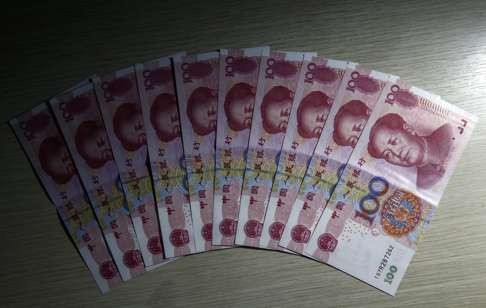Yuan reverses despite tenth day decline in daily fixing
Offshore yuan traded in Hong Kong recovered from a three-day drop, up 0.13 per cent, or 87 basis points, to 6.799 against the US dollar

The yuan recovered slightly after its fall to an eight-year low on Wednesday, to trade stronger on Thursday, despite China’s central bank cutting the reference rate for the tenth consecutive trading day.
China’s central bank on Thursday set the daily fixing 100 basis points, or 0.15 per cent weaker at 6.8692, the lowest level since June 2008. Trading is allowed up to 2 per cent either side of the reference point for the day.
Offshore yuan traded in Hong Kong recovered from a three-day drop, up 0.13 per cent, or 87 basis points, to 6.799 as of 5.45pm, after slipping to 6.8957 on Wednesday, the lowest level since the offshore market was launched in 2010.
Onshore yuan traded in Shanghai broke its five-day decline, rebounding from its eight-year low at 6.8770, strengthening 0.14 per cent, or 94 basis points, to trade at 6.8676 per dollar.
Both offshore and onshore yuan remained to trade below 6.86, a level regarded by officials and analysts as psychologically important despite of its rebound.
